Stock vs custom kitchen cabinets - which style is best for your kitchen?
Unsure whether to opt for stock vs custom kitchen cabinets? We unravel the pros and cons of each option

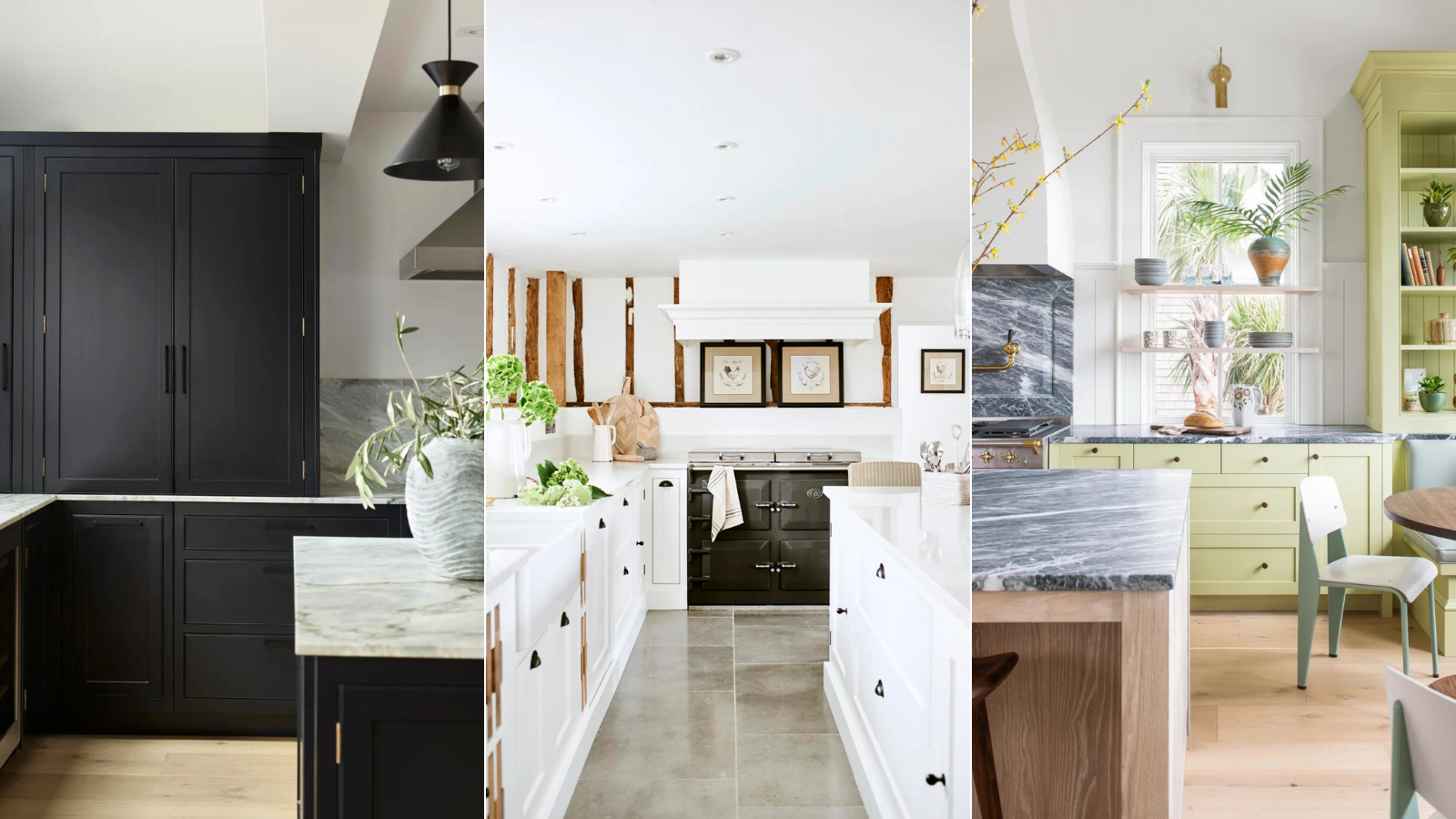
Design expertise in your inbox – from inspiring decorating ideas and beautiful celebrity homes to practical gardening advice and shopping round-ups.
You are now subscribed
Your newsletter sign-up was successful
Want to add more newsletters?

Twice a week
Homes&Gardens
The ultimate interior design resource from the world's leading experts - discover inspiring decorating ideas, color scheming know-how, garden inspiration and shopping expertise.

Once a week
In The Loop from Next In Design
Members of the Next in Design Circle will receive In the Loop, our weekly email filled with trade news, names to know and spotlight moments. Together we’re building a brighter design future.

Twice a week
Cucina
Whether you’re passionate about hosting exquisite dinners, experimenting with culinary trends, or perfecting your kitchen's design with timeless elegance and innovative functionality, this newsletter is here to inspire
Starting a kitchen remodel or designing a new kitchen from scratch is a significant venture, especially since the kitchen is often considered the heart of the home. So it's crucial to make informed decisions about your cabinetry to turn your kitchen dreams into reality without costly mistakes.
One key decision in this process is choosing between stock and custom kitchen cabinets. This choice goes beyond mere storage; it's about creating a layout that is both functional and reflective of your unique style.
Stock cabinets offer a quick, budget-friendly option, while custom cabinetry provides a tailored fit for your specific needs and aesthetics. But which option is right for you? We asked kitchen designers and home renovation specialists to unravel the pros and cons of each.
Stock vs custom kitchen cabinets
Are you wondering whether to opt for stock or custom kitchen cabinets for your upcoming kitchen remodel? The right choice comes down to matching your budget and style with your specific kitchen needs to create a space that feels right for your home. Experts typically break this decision into four key considerations:
1. Price
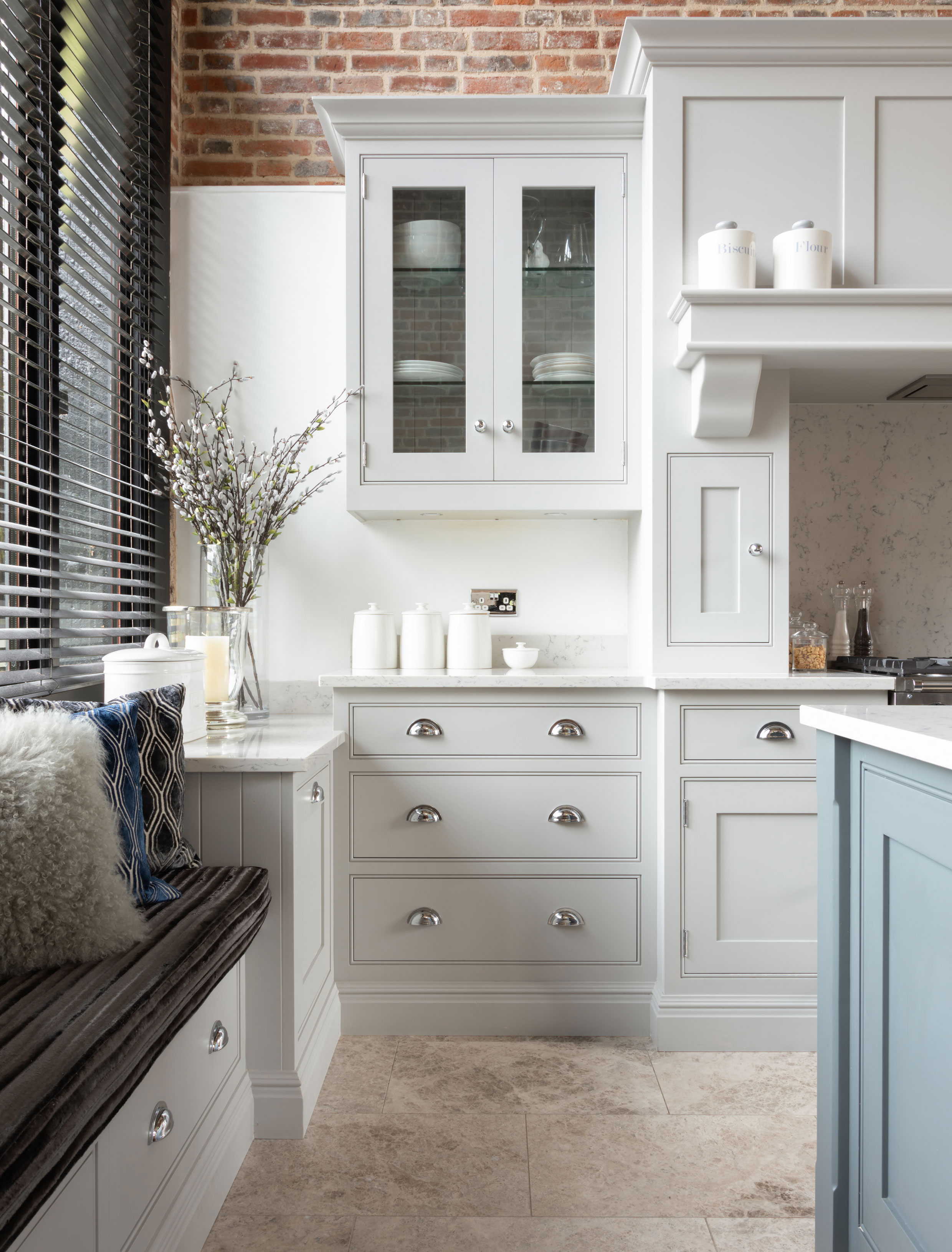
When it comes to kitchen renovations, price is often a deciding factor in choosing between stock and custom cabinetry.
'Stock cabinets are generally more budget-friendly, with costs ranging from $50 to $300 per linear foot,' explains Chris Hock, General Contractor at Earth Saving Solutions. This affordability makes stock cabinets an attractive option, especially for those who need to consider how much it costs to have kitchen cabinets painted as part of their remodeling plans. For the most part, stock cabinets offer a practical solution without a hefty price tag.
On the other end of the spectrum, the cost of custom kitchen cabinets averages between $200 and $1,200 per linear foot, making them a significant investment. These bespoke solutions also offer more options for kitchen cabinet colors and finishes, which adds to their appeal but also their overall cost.
While stock cabinets win in terms of cost-effectiveness, custom cabinets offer greater personalization and adaptability to specific kitchen layouts and styles, albeit at a higher price tag. Whichever option you choose will often boil down to budget constraints versus your desire for a customized look.

Chris Hock is a general contractor with over 24 years of experience in the construction industry. He has a strong background in project management and has successfully overseen the completion of countless construction projects across various industries.
2. Quality
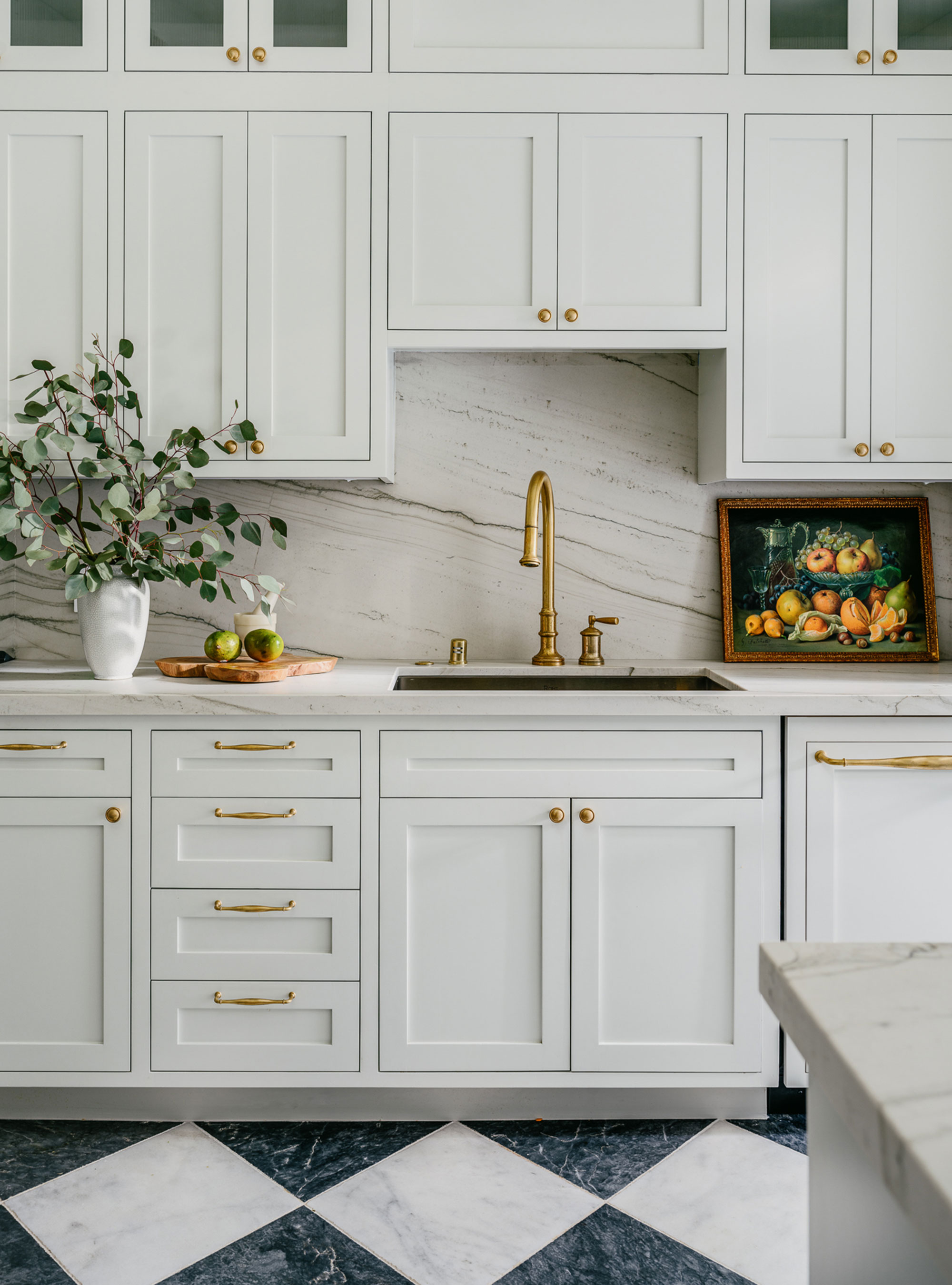
Quality is arguably the biggest factor to consider when deciding between stock vs custom kitchen cabinets. The overall quality of the materials used to craft your cabinetry will directly impact the longevity and appearance of your kitchen.
'Quality among stock cabinets can vary greatly,' explains Chris Hock. 'Most stock manufacturers use lower-grade materials from China with variations in the quality of finish.' While these cabinets provide a functional solution, they may not always meet high standards of durability or provide a beautiful finish. This is particularly important when considering options like kitchen corner cabinets that require robust construction.
'Bespoke, custom cabinetry means high quality,' says Greg Roth, Senior Interior Designer at CarbonShack. 'Higher quality products will last longer, take fewer repairs, and save you money in the long run. Custom cabinets also allow for greater control over materials and finishes, ensuring a high-quality end product that complements your kitchen's design.'
'Custom kitchen cabinets are unparalleled in giving your home a high-end and unique look,' agrees Jeff Kaper, Owner of Spectrum Design Group. 'Investing in premium cabinetry is similar to purchasing a Mercedes over, say, a Chevrolet. Both vehicles will get you where you need to go, but the comfort, feel, and emotion of the luxury vehicle make the drive much more enjoyable. It's the finer details that make a huge impact.'
While stock options might be more budget-friendly, their quality and poor durability often let them down. Experts unanimously agree that custom cabinetry offers a more robust and long-lasting solution, ideal for those who prioritize quality and are willing to invest in their kitchen's future.

Greg Roth has more than 20 years of experience in the worlds of architectural, graphic and interior design. After earning a Master of Architecture degree from the Southern California Institute of Architecture, Greg spent several years in commercial and hospitality architectural design before segueing to residential interiors.

Jeff Kaper has been involved in the creative world for more than 20 years specializing in residential kitchens and baths as well as custom commercial casework. He will tell you the best part of his job is the amazing clients he has worked with through the years, many of them becoming close friends.
3. Customization
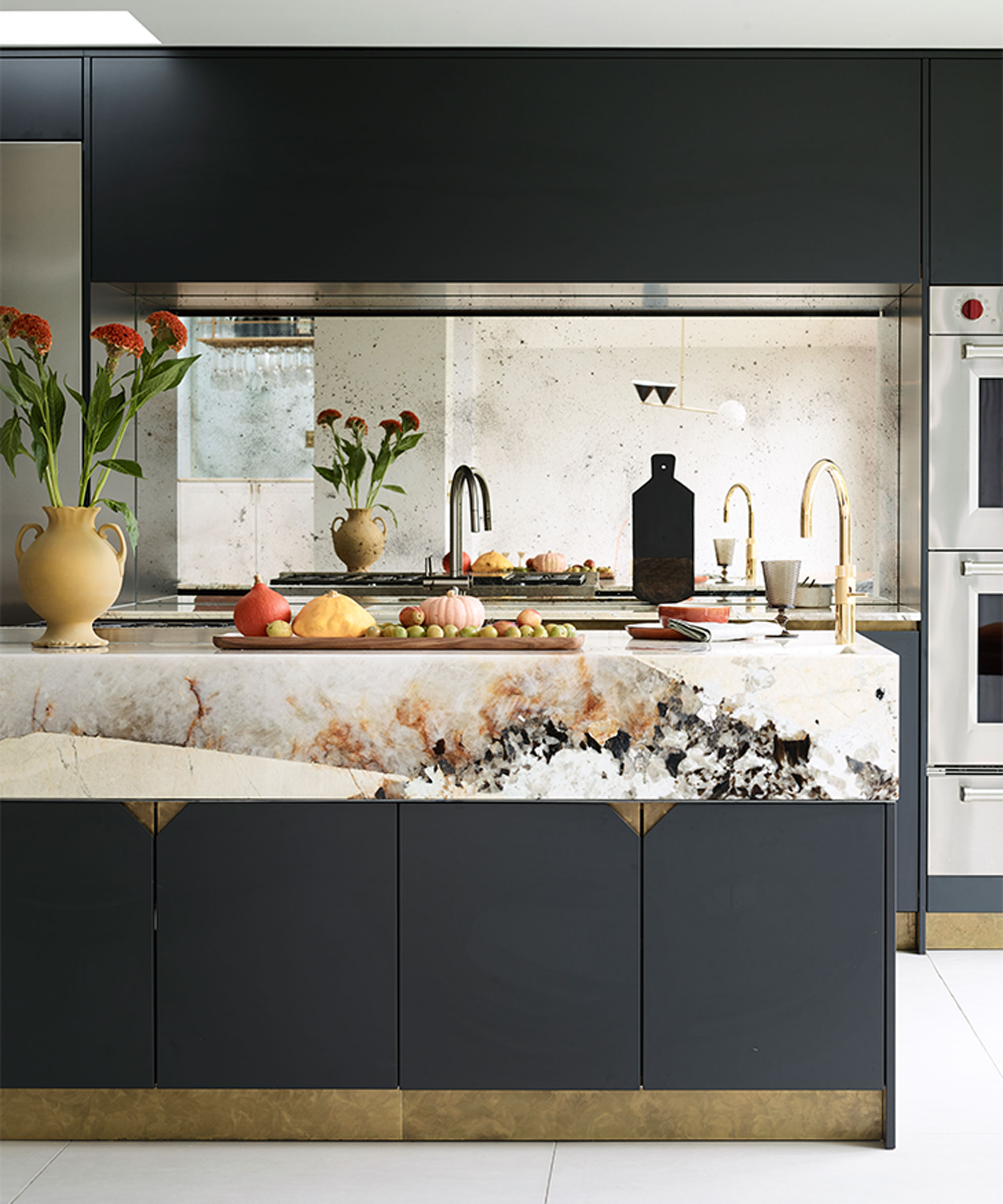
Although convenient, stock cabinets are often limited in terms of color, materials, or opportunities for customization. This means that while they can accommodate basic layouts and styles, they may fall short when it comes to meeting your specific layout needs.
Once again, custom cabinets shine in their ability to be tailored to the exact specifications of your kitchen. 'Brands like Ultra Craftand many other specialists can go down to the 1/16th of an inch for an ultra-customized look and feel,' explains Chris Hock. 'This level of customization not only allows for a perfect fit in any kitchen layout, including challenging spaces, but also offers a wide array of style, color, and material choices to truly reflect personal taste and needs.'
Ultimately, the clue is in the name. If customization is your main priority, you should opt for custom cabinets every time. However, it's possible to transform stock options by painting kitchen cabinets in your favorite color or swapping out stock hardware for higher-end alternatives.
4. Speed
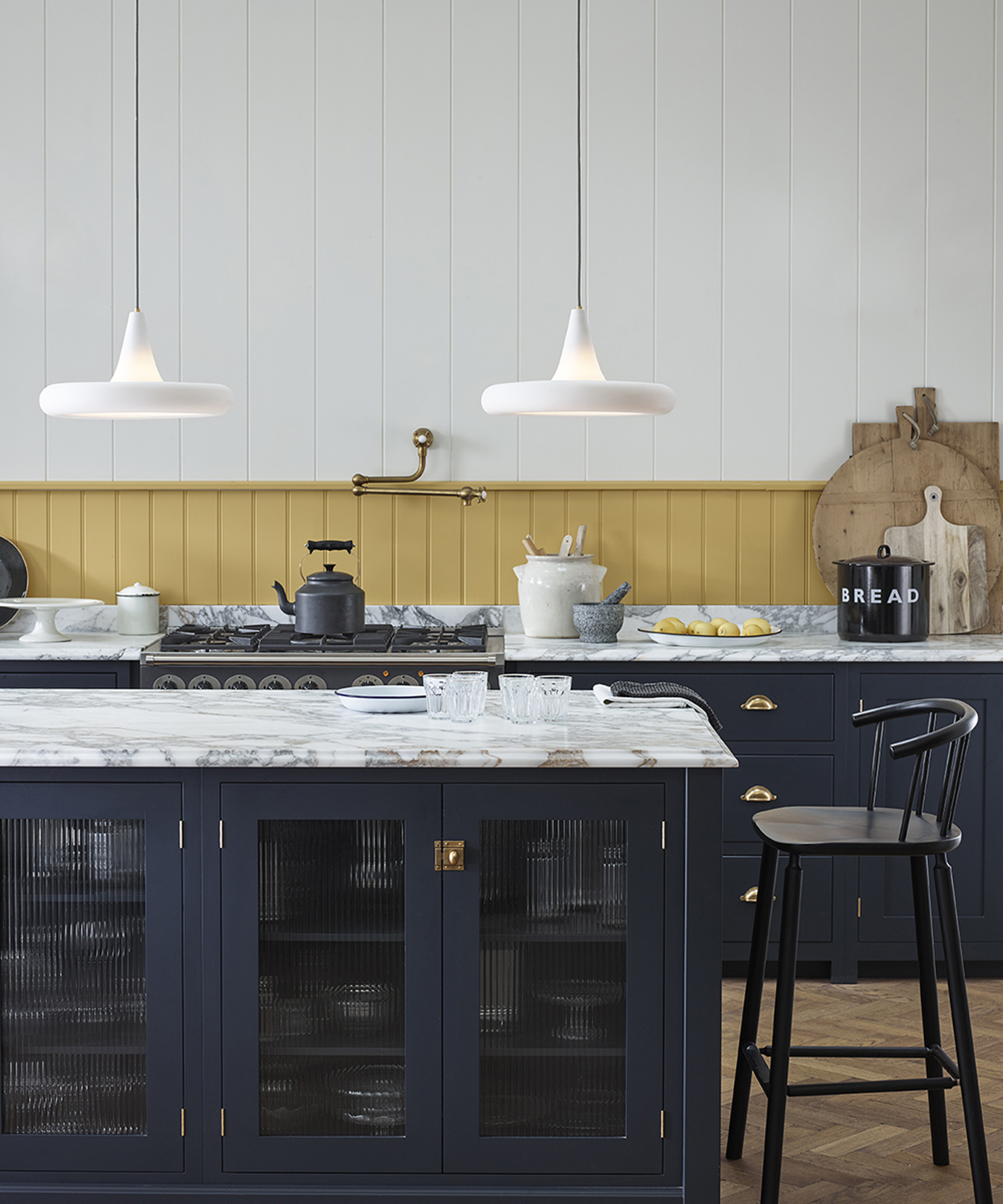
The speed of manufacturing and installation is another key consideration, especially for those working within tight timelines. Stock cabinets are known for their quick availability, a major plus for rapid renovations. As they are often available to ship or pick up almost immediately (due to pre-manufacturing), opting for stock designs can speed up the installation process and reduce the overall timeline of a kitchen renovation project.
'Conversely, designing and producing custom cabinets takes considerably longer, often several weeks to months,' points out Archie Tkachoff, Founder of Arteum.design. 'They also often need to be installed by a skilled craftsman, increasing their overall cost and significantly extending the timeline of a kitchen remodel'. To find a middle ground, Archie recommends purchasing a stock kitchen from a brand such as Ikea and swapping out the cabinet fronts for custom designs.
Design expertise in your inbox – from inspiring decorating ideas and beautiful celebrity homes to practical gardening advice and shopping round-ups.
The intricate process of designing, crafting, and installing custom pieces means they are not the ideal choice for those needing a quick solution. However, the wait can be worthwhile for those who prioritize a bespoke design and fit, especially in tricky kitchen layouts.

Archie Tkachoff is a professional woodworker and owner of San Francisco-based Arteum.design. He established Arteum.design in 2023 to offer homeowners a modern alternative to outdated traditional kitchen cabinets.
FAQS
Which cabinets should I chose for small or irregularly shaped kitchens?
For kitchens with limited or unique layouts, the decision hinges on how you use the space and your needs. Stock cabinets, while budget-friendly and readily available, may not always fit perfectly into irregular or small kitchen layouts, potentially leading to wasted areas or a cluttered look. Custom cabinets, on the other hand, can be designed to maximize every inch of space. They are ideal for odd-shaped kitchens where standard sizes don't fit. If budget is a concern, consider a hybrid approach, using stock cabinets for standard areas and custom pieces for trickier spots.
Can you mix stock and custom cabinets?
Combining stock and custom cabinets can be a smart strategy for balancing cost with customization. Use stock cabinets for standard areas of the kitchen where conventional sizes and styles work well. Custom cabinets can then be employed for specific areas needing tailored solutions, like corner units. This approach allows for personalization where it's most impactful while keeping kitchen remodel costs down. However, you should ensure your kitchen design remains cohesive by matching colors and finishes across both types of cabinetry.
Which type of cabinet is easier to maintain?
The longevity and maintenance of cabinets will vary between stock and custom options. Stock cabinets, often made with less expensive materials, may show wear sooner and require more frequent replacements or updates.
Custom cabinets, typically built with higher-quality materials and craftsmanship, offer greater durability. They're likely to last longer, withstand daily use better, and maintain their appearance over time. While the initial investment is higher, the long-term maintenance and replacement costs could be lower with custom cabinets, making them a cost-effective choice in the long run.
There are many ways to update a kitchen without buying anything new, from decluttering your space to refinishing kitchen cabinets or swapping your light fixtures. However, if you have set aside the budget to improve this space, it's worth noting that kitchen renovations can provide a 100% return on your investment.
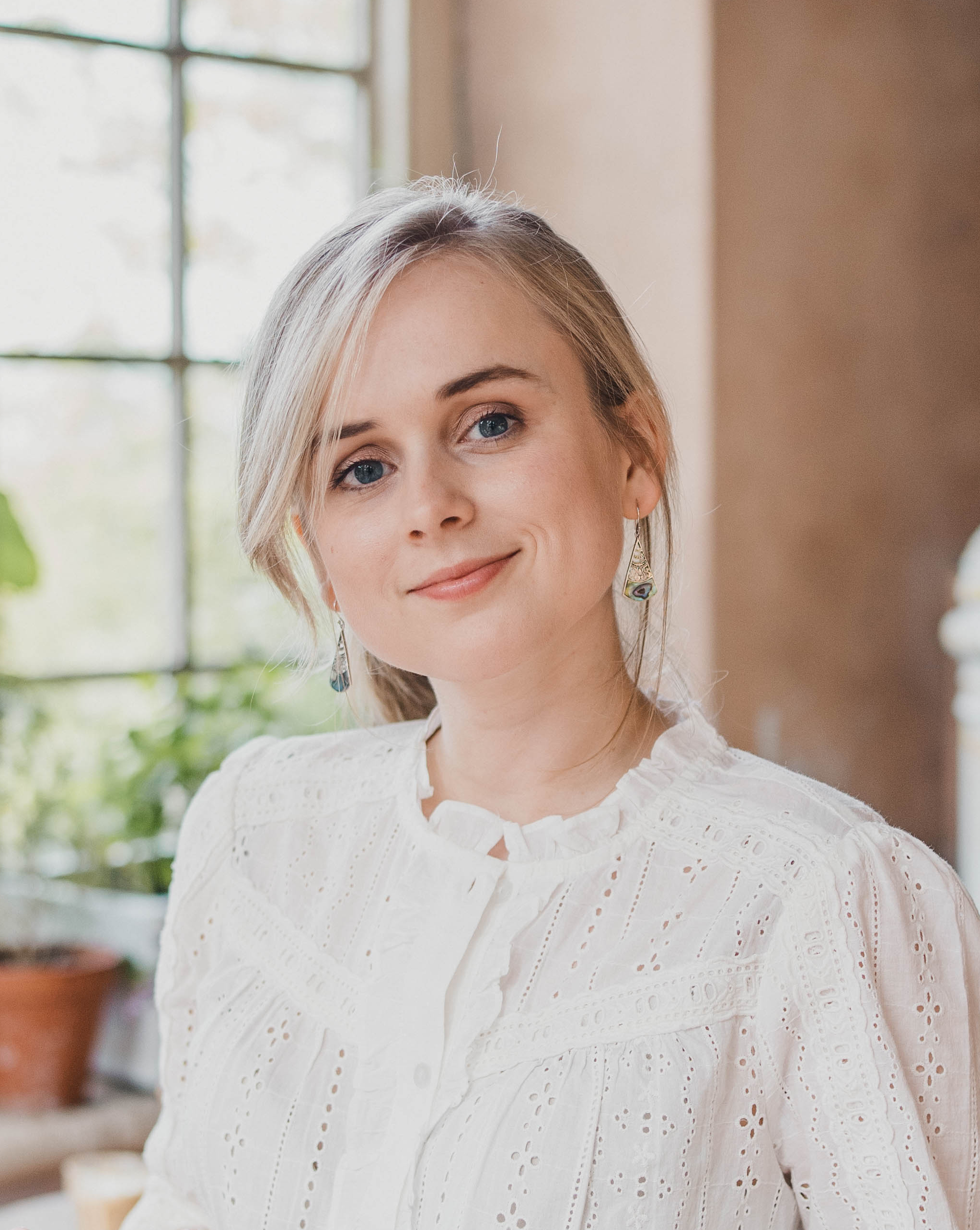
Gabriella is a freelance contributor for Homes & Gardens. She is a DIY enthusiast and a lover of all things interior design, often found antiquing or browsing the aisles of her local hardware store. She has a particular passion for historic buildings and is in the process of renovating a Victorian coachhouse in the countryside.
For much of the past decade, Gabriella has worked as a freelance writer, crafting copy for national publications and renowned homeware brands. Most recently, she worked for Homebuilding & Renovating Magazine and is the former Head of Solved at Homes & Gardens, focusing on case studies for the magazine and website, as well as writing features about issues surrounding historic and listed building projects.